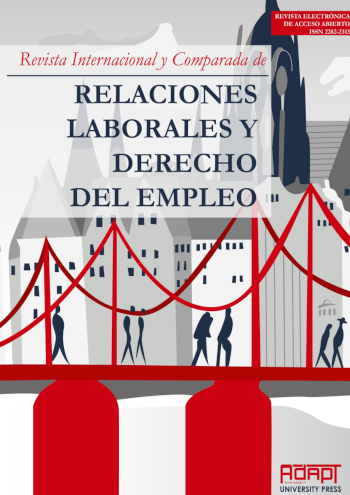Resumen
La historia de la humanidad es la historia de las diferentes formas de trabajo desarrolladas a partir de las innovaciones tecnológicas que fueron definiendo la forma de pensar y organizar una sociedad. En el actual modelo postindustrial confluyen tecnologías altamente automatizadas con cambios estructurales y culturales, que modifican las Instituciones comúnmente aceptadas hasta la finalización del siglo XX, e impactan fuertemente en el modelo tradicional de trabajo. La digitalización y automatización plantean la recalificación de las competencias habilitantes para el nuevo modelo industrial, en un contexto que polariza la sociedad entre trabajos que producen riqueza y trabajos pobres, trabajadores altamente capacitados y trabajadores expulsados del mercado de trabajo. En América Latina (México, Chile, Brasil) se sigue el ejemplo de las reformas laborales europeas, pero las nuevas legislaciones responden más a un propósito político (desregulación del contrato de trabajo y actitud antisindical), que a estudios técnicos.
The history of humanity is the history of different forms of work developed from technological innovations, that define the way of thinking and organize a society. In the current post-indusrial model, highly automated technologies converge with structural and cultural changes, that modifiy the Institutions roles accepted until the end of the 20th century and impact strongly on the traditional work model. Digitization and automation discusse the associated effects on the labour force and highlights what skills will be particularly sought after in the new industrial model, in a context thar polarizes societies in terms of the gap between rich works and poor works, highly qualified jobs and workers expelled from the labor market. In Latin America (México, Brazil, Chile), we follow the example of European labor reforms, bat new the new legislation responds more to a political purpose (deregulation of work relationships and prejudice against labor unions), tha to technical studies.

